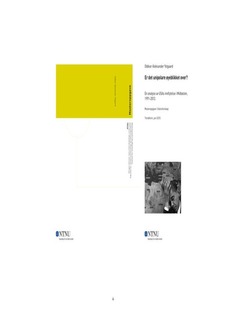Er det unipolare øyeblikket over? : En analyse av USAs innflytelse i Midtøsten, 1991-2013.
Master thesis
Permanent lenke
http://hdl.handle.net/11250/2356308Utgivelsesdato
2015Metadata
Vis full innførselSamlinger
Sammendrag
This thesis examines if the current the international systemic structure may still be defined as unipolar. To test this, U.S. influence and power in the Middle East from 1991 to 2013 is analysed. The thesis will also briefly briefly examine U.S power in Europe and East Asia, in the same period of time, in order to answer this thesis main research question. Influence is operationalize through United Nations general assembly votations, and gross domestic product and military expenditure will serve as a proxy to economic and military power. Through analyzing 1614 UN resolutions I find that U.S. influence in the Middle East is rapidly shrinking. The main cause for this trend is that the U.S. is losing terrain, in terms of relative economic and military power in the region. The consequences of this effect is that the unipole has changed its behaviour from active to passive in the region. Where the U.S. previously sought to solve destabilizing situations, it now allows other actors to solve these situations, in effect giving these other actors an active role. The observed trend in Middle East is also present in an analysis on U.S. power in Europe and East Asia. This relative loss of power can be seen through states being more independent of the U.S., such as China and Russia, as they appear to have initiated an incipient counter-balancing to the unipole. Based on the definition of unipolarity, constructed on Ikenberry, Wohlforth and Wilkinson works, this thesis concludes that the structure of the international systems still is unipolar. However, the systemic data analyzed in this thesis shows clear signs that the U.S. unipolar moment, is coming to an end.
